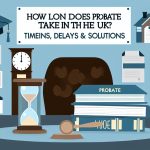Table of Contents

Key Takeaways
- UK Property Trusts offer a structured way to manage and pass on assets, but they come with specific legal requirements.
- Choosing the right type of trust depends on your goals, whether it’s tax efficiency, asset protection, or providing for a loved one.
- Setting up a trust involves creating a trust deed, selecting trustees, and understanding the tax implications.
- Trustees have a legal obligation to manage the trust responsibly and in the best interest of the beneficiaries.
- Registering your trust with HM Revenue and Customs (HMRC) is a crucial step that must be handled with care to ensure compliance.
Navigating the Creation of a UK Property Trust
Let’s dive right into the world of UK Property Trusts. Think of a trust like a treasure chest where you can securely store your property until it’s time to hand over the key to someone else. But before you can start, you need to understand the rules of the game and how to play it right.
Defining a UK Property Trust
So, what exactly is a UK Property Trust? In simple terms, it’s a legal arrangement where you, the ‘settlor’, place your property under the control of ‘trustees’. These trustees then manage the property for the benefit of ‘beneficiaries’. Think of it as appointing a team to look after your prized garden while you’re away, ensuring it thrives and benefits those you care about.
But why would you want to put your property in a trust? There are a few reasons:
- To maintain control over who benefits from your property and when.
- To protect the property from certain taxes and claims.
- To provide for someone who can’t manage the property themselves.
Remember, setting up a trust is a significant move that requires careful consideration and expert guidance.
Understanding the Purpose and Advantages
Trusts aren’t just for the wealthy or the famous. They’re for anyone who wants to ensure their property is handled according to their wishes. For instance, you might want to make sure your home is passed on to your children at a certain age or that a family member with special needs is taken care of.
The advantages are clear:
- Control: You decide how your assets are used and who benefits from them.
- Protection: Trusts can shield your property from claims and creditors.
- Tax Efficiency: With the right setup, you can minimize inheritance tax and other liabilities.
But with these benefits come responsibilities and legalities that you must navigate carefully.
The First Steps to Establishing Your Trust
First things first, you’ve got to lay the groundwork. This means deciding what type of trust you need and what you want it to achieve. Let’s break it down.
Selecting the Right Type of Trust
There are several types of trusts, and each serves a different purpose. Here’s a quick rundown:
- Bare Trusts: Simple and straightforward, they transfer assets to beneficiaries who are entitled to them immediately at 18.
- Discretionary Trusts: These give the trustees the power to make decisions about how to use the trust income, and sometimes the capital.
- Interest in Possession Trusts: Beneficiaries can get income from the trust right away, but they might not have rights to the trust’s property.
- Accumulation Trusts: These allow trustees to accumulate income within the trust and add it to the trust’s capital.
Choose wisely, because the type of trust you pick will dictate everything from tax implications to how much control you have over your assets.
Documentation and Trust Deed Essentials
Now, for the trust deed. This is the document that sets out the trust’s terms – it’s your rulebook. It needs to be clear, legally sound, and in line with your objectives. Here’s what you need to cover:
- The assets you’re placing in trust (this could be your house, a piece of land, or investment properties).
- Who the trustees are – they’re the ones who will manage your trust.
- Who the beneficiaries are – these are the folks who will benefit from your trust.
- Any specific rules about how the trust should operate.
Getting this document right is crucial, so don’t skimp on legal advice here.
Regulatory Compliance for Trust Creation
When you’re setting up your UK Property Trust, you’ve got to play by the rules. This means understanding the laws and regulations that apply to trusts. The Trustee Act 2000 is a good place to start – it outlines the duties and powers of trustees. Besides that, there are specific regulations regarding registration, taxation, and record-keeping. Make sure you’re up to speed with these requirements to avoid any hiccups down the line.
Responsibilities and Rights of Trustees
Trustees are the backbone of your trust. They’re the ones who will manage your property and make sure your wishes are fulfilled. But with great power comes great responsibility. Trustees must act in the best interests of the beneficiaries, manage the trust’s assets wisely, and keep accurate records. They also have the right to be indemnified from the trust’s assets for expenses they incur – as long as they’re acting in line with their duties.
Choose your trustees carefully – they need to be reliable, financially savvy, and, most importantly, trustworthy.
Trust Taxation: What You Need to Know
Now, let’s talk taxes. Trusts have their own tax regime, and it’s vital to get your head around it. There are three main taxes to consider: Income Tax, Capital Gains Tax, and Inheritance Tax. Each one has different rules depending on the type of trust you’ve set up. You need to be prepared to meet these tax obligations, or you could face penalties from HMRC.
For example, if you set up a Discretionary Trust, the trustees are responsible for paying Income Tax on trust income and Capital Gains Tax on any profits from selling trust assets. It’s not as straightforward as personal taxes, so it’s worth seeking advice from a tax specialist.
Income Tax Considerations for Trusts
Income Tax is a biggie for trusts. The trust may receive income from rental properties or dividends from shares, and this income is subject to tax. The rates can be higher than personal Income Tax rates, so it’s essential to understand how much the trust will need to pay. Also, consider how income distributions to beneficiaries will be taxed – they might get a credit for tax already paid by the trust.
Inheritance Tax and Trusts: Planning Ahead
Inheritance Tax (IHT) can take a big bite out of your trust’s assets if you’re not careful. Planning ahead is key. Some trusts are subject to a 10-yearly IHT charge, while others might be taxed when assets are added or removed from the trust. Know the rules, and you can structure your trust to minimize the IHT hit.
Finishing Touches: Finalising Your Trust
You’re almost there. Once you’ve got all the pieces in place, it’s time to finalize your trust. This means signing the trust deed, transferring the property into the trust, and registering with HMRC. Don’t rush this part – it’s important to make sure everything is done correctly to avoid problems later on.
Registering the Trust with HMRC
Registration is not just a formality – it’s a legal requirement if your trust generates income or is liable for certain taxes. The process involves providing details about the trust, the settlor, the trustees, and the beneficiaries. HMRC will then provide a Unique Taxpayer Reference (UTR) for the trust, which you’ll need for all future tax returns.
Transferring Property into the Trust
- Get a professional valuation of the property to ensure you’re transferring it at the right price.
- Inform any mortgage providers or insurers about the transfer to the trust.
- Complete any necessary legal paperwork, such as a deed of transfer, to officially move the property into the trust.
Once the property is in the trust, the trustees are in control, and they’ll need to manage it according to the terms of the trust deed.
And there you have it. You’ve established your UK Property Trust. But remember, this isn’t a set-and-forget situation. You need to manage the trust, keep up with the legalities, and ensure the beneficiaries are looked after.
Common Pitfalls and How to Avoid Them
Even with the best intentions, things can go wrong. Here are some common pitfalls and how to steer clear of them:
Avoiding Missteps in Trustee Selection
Choosing the wrong trustees can spell disaster for your trust. Pick people who are not only trustworthy but also have the skills to manage your property effectively. Think long-term – will they be able to handle the responsibilities for the duration of the trust?
Navigating Complexities in Trust Taxation
Tax laws can be a minefield. The complexities of trust taxation can trip up even the most diligent trustees. Keep abreast of changes in tax legislation and consider working with a tax advisor to ensure your trust remains compliant.
With these tips in hand, you’re well on your way to setting up a UK Property Trust that serves its purpose well. Remember, this is about securing your property’s future and providing for your loved ones. Take the time to get it right, and your trust will be a lasting legacy that reflects your wishes and takes care of those you care about.
FAQs
Can I establish a UK Property Trust on my own?
Technically, you can set up a UK Property Trust on your own, but it’s not advisable. The legalities involved are complex, and making a mistake could be costly. It’s wise to seek professional advice from a solicitor and a tax advisor to ensure everything is set up correctly.
How long does it take to set up a UK Property Trust?
The time it takes to set up a UK Property Trust can vary. If the trust is straightforward and you have all the necessary information and documents ready, it could take just a few weeks. However, if there are complexities, such as multiple properties or beneficiaries, it could take several months to ensure everything is structured properly.
What are the ongoing responsibilities of managing a trust?
Managing a trust is an ongoing responsibility that includes:
Maintaining accurate records of the trust’s assets and transactions.
Ensuring the trust complies with tax laws and filing annual returns with HMRC.
Managing the trust’s assets wisely and in the best interests of the beneficiaries.
Trustees must be diligent and proactive to fulfill these responsibilities effectively.
Are all UK Property Trusts taxed the same way?
No, the taxation of UK Property Trusts depends on the type of trust and how it’s structured. Different trusts have different tax implications for Income Tax, Capital Gains Tax, and Inheritance Tax. It’s important to understand the specific tax rules that apply to your trust.
For instance, while Discretionary Trusts may pay higher rates of Income Tax, Bare Trusts are usually taxed on the beneficiary’s personal tax rate, which could be lower.
Can a trust own property outright?
Yes, a trust can own property outright. Once property is transferred into the trust, the trustees hold the title to the property on behalf of the beneficiaries. The property is then managed according to the terms of the trust de
- The True Cost of Probate in the UK: Fees, Taxes, and Hidden Charges – 9 January 2026
- Do You Always Need Probate? When You Can (and Can’t) Avoid It – 6 January 2026
- How Long Does Probate Take in the UK? Timelines, Delays & Solutions – 3 January 2026






